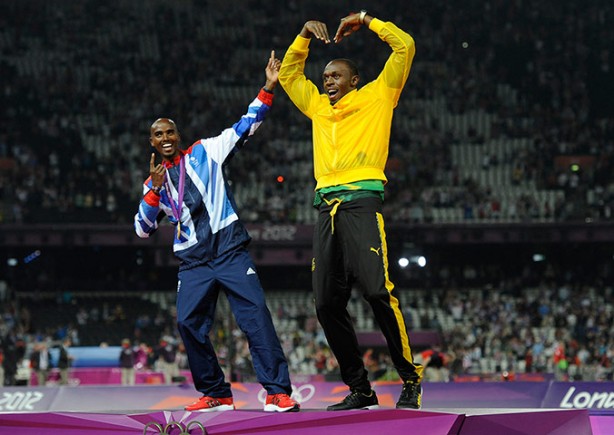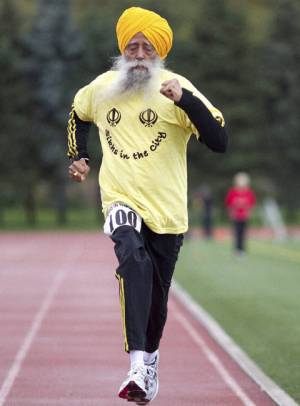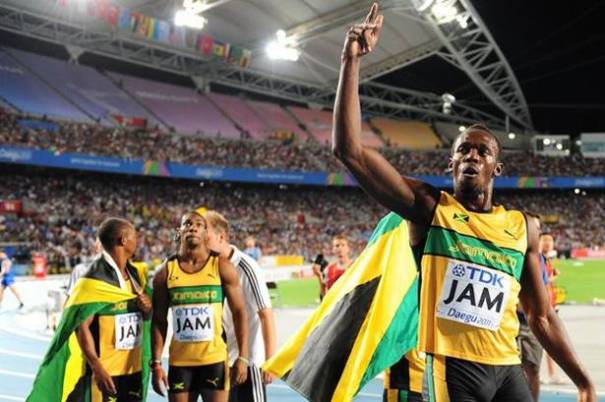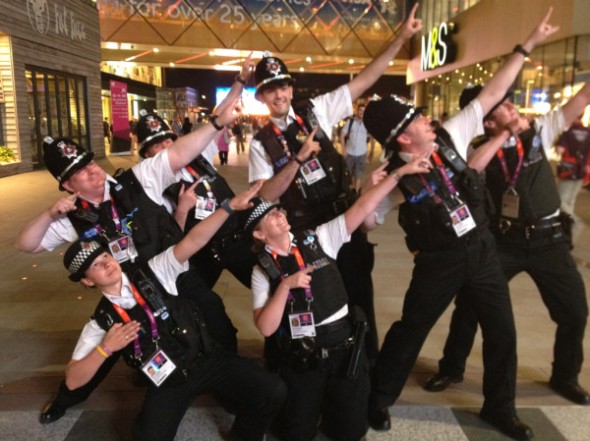In addition to the Jamaican dominance in the sprints, the other remarkable success story of London 2012 was the success of Team GB. With a relative small population of 62 million, Great Britain came third in the medals table, out-performing larger countries like Germany, France, and Russia. Part of this success is no doubt due to the home advantage – that extra boost that athletes get from performing infront of a strongly partisan home crowd, just as it helped the Aussies in Sydney in 2000, and the Chinese in Beijing in 2008. But there is clearly something more to it than that. After all, the home court advantage seems to be of no aid to British tennis players at Wimbledon.
The mystery is not only how did these small countries punch above their weight, but also ‘how can the UK dominate in sports that we don’t even see outside of the Olympics, and yet have had no success at the game’s national game of football since 1966? For the answer we must follow the money. Not the money generated by the sport (in which football has no equal) but the money pumped into grassroots development. Part of the reason that the host nation always performs well at the Games that they host, is not just due to the support of the crowd, but due to the extra investment that the government pumps in, in the run-up to the event.
The UK is now the dominant world power in cycling, winning 7 out of the 10 Gold medals on offer. As well as a Gold medal, Bradley Wiggins also won this year’s Tour de France, and Sir Chris Hoy is now Britain’s most successful ever Olympian winning 6 Golds, usurping legendary rower Sir Steven Redgrave. But Britain only started their domination in cycling at the Sydney games in 2000 after the team started receiving funding from the national lottery in 1997.
Despite the high profile success of UK athletes Mo Farah and face of the games Jessica Ennis, Team GB under performed on the track winning only 6 medals (2 below the target). But they punched above their weight in equestrian events, sailing, and rowing. Team GB also struck Gold in trap shooting. Are you noticing a pattern? These are the pastimes of the rich. Anyone who listened to the post-event interviews with the British medal winners can’t failed to have notice the differences in accents between the Olympic winners of these elitist sports, and the regional accents of those who participate in athletics, boxing, and judo.
Nearly a quarter of this year’s Team GB competitors were educated at fee-charging schools (which are attended by only 7% of the total child population). Obviously in events like sailing, shooting, and equestrian the proportion is much higher. In stark contrast to the classic story of boxers who only avoided a life of crime by discovering their sport, some of Britain’s row team are academics. Gold medal winning rower Katherine Grainger is a law graduate from Edinburgh university, who went onto to take a Masters in medical law, and is now doing a PhD at King’s college London. Her rowing partner in the women’s double sculls, Anna Watkins is a Cambridge graduate, now studying for a PhD in mathematics. Now more than ever, a good education, just like sporting success doesn’t come cheap.
The story of Peter Wilson, gold medal winner in the trap shooting, is revealing. Wilson was educated at three independent schools and took up shooting at his father’s suggestion after he suffered nerve damage to his shoulder in a snowboarding accident which left him unable to play squash and cricket. Having been brought up on his parents’ farm he was no stranger to shotguns. Within four months of trying shooting at the Bisley Ranges,Wilson became the 2006 European Junior Champion. However, following the lack of shooting medals at the 2008 Games, Wilson’s funding from UK Sport was cut and he was required to self-fund his shooting expenses – nearly £10,000 a year. His parents funded him for a year while he tried to secure further funding and also received support and coaching from Ahmad Mohammad Hasher Al Maktoum, who is a member of the ruling family of Dubai. After winning Gold at this year’s Games Wilson went on TV to encourage any youngsters to go on-line and find their nearest shooting centre so they could take up the sport. Without wanting to take anything away from his medal success, he seemed blissfully unaware that his own progress had been dependent on the wealth and contacts of friends and family. Wealth and contacts that most British kids who go to comprehensive schools, do not have.
It is the same story in many non-Olympic sports. Of the England cricket squad in August’s test match, all seven batsmen were privately educated. Football and boxing it seems are the only sports where state educated, working class boys can attain success (see David Beckham, Wayne Rooney, John Terry etc). We’re used to such observations being made about Politics, and employment, but why does the English class system exist in sports?
For the answer we must go back to school. Anyone who went to state school, and now has children in the same system will have noticed how things have changed in regard to sports in school. It’s not just about the advent of such ridiculous things as the ‘non-competitive school sports days. It’s about access and facilities. School playing fields are being sold off, and teachers are more reluctant to supervise out-of-hours sport, partly due to changes in their contracts, and partly because of increased pressure to meet academic targets.
At the same time the fee-paying schools are investing in more tennis courts, rugby pitches, cricket nets, indoor heated swimming pools, and athletics tracks, as a way to attract the patronage of the monied parents. If you are going to pay £20,000 a year in tuition fees, you not only want a top notch education and the best academic standards for your children – you also expect top notch facilities for extra-curricular activities like music, drama, and of course sport. And whilst these elite schools will invest in tennis, rugby, archery, and shooting, they leave football to the plebs in state school. Until someone starts to pump money into developing footballing talent at the grass roots, England will never again win the World Cup.
During this Olympics, there was much talk of Jamaicans being natural sprinters, or the Kenyans being natural distance runners, but surely the explosive power of the sprinters could also be put to good use in rowing or swimming, and the cardio vascular endurance of Kenyans prove useful in the Tour de France? (Strange isn’t it that no one talks about ‘natural sporting talent or genetic advantage of Europeans in these sports). But sailing, rowing, cycling and swimming require expensive equipment and facilities like velodromes, and heated Olympic sized swimming pools – whereas running requires nothing but somewhere to run.
If Team GB wants to continue its medal success in future Olympics, and avoid the demise that Australia has suffered over the last two games, then the government must continue to pump money into grass roots development. David Cameron has already confirmed the future funding for elite athletes. But what about the kids? How do they get to join that elite squad, and get access to all that funding, facilities, and coaching? It seems that if we want our children to enjoy sporting activity away from the games consoles, then we must either send them to private schools or take on that responsibility ourselves.













